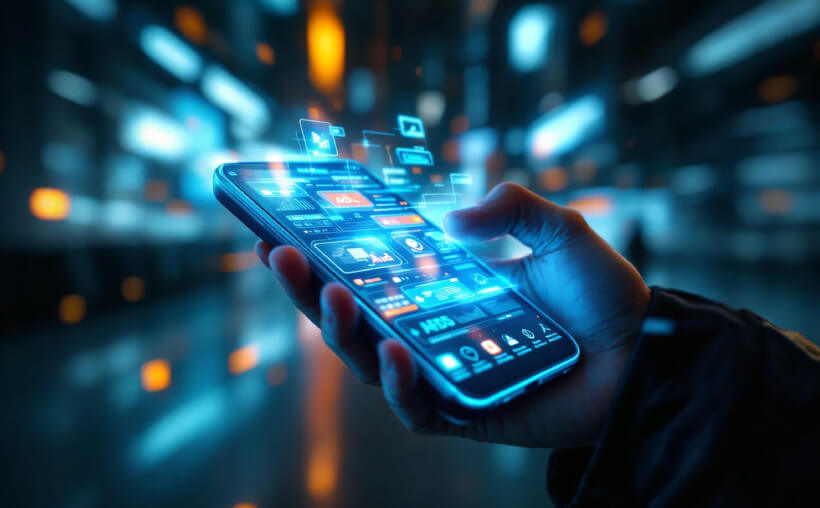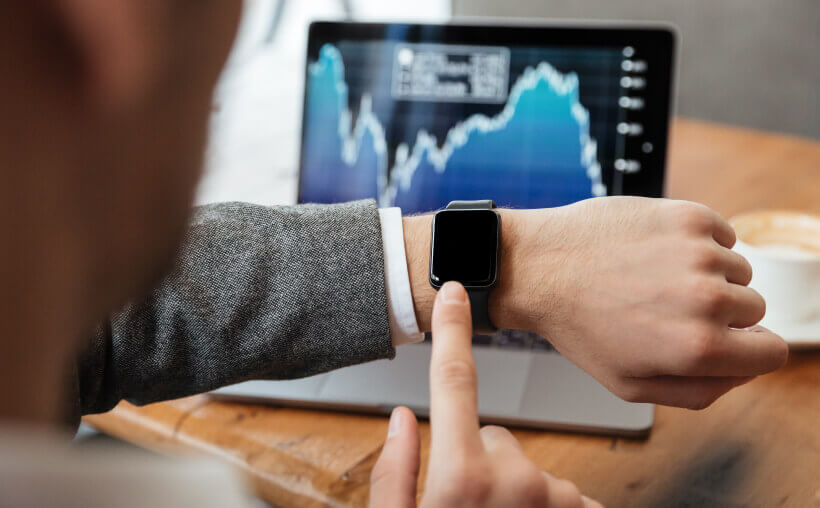The Future of Marketing in an AI-Driven World: What B2B Leaders Need to Know
AI is no longer a futuristic tool—it's embedded in every aspect of how brands engage their audiences, optimize campaigns, and drive business growth.

In 2025, marketing is undergoing a seismic shift. AI is no longer a futuristic tool—it's embedded in every aspect of how brands engage their audiences, optimize campaigns, and drive business growth. According to HubSpot’s 2025 State of Marketing Report, AI-powered marketing is making content creation more efficient, customer engagement more personalized, and data-driven decision-making more precise than ever before.
For B2B leaders, this transformation presents both immense opportunities and pressing challenges. How can businesses harness AI-driven marketing while maintaining brand authenticity? How do they balance automation with human connection? Let’s break down key insights from HubSpot’s report and how they impact B2B decision-makers.
1. AI is Supercharging Marketing—But Brand Authenticity is Key
Gone are the days when scaling marketing meant just increasing ad spend. AI tools are helping businesses automate strategy execution, create multi-modal campaigns, and deliver hyper-personalized experiences to customers. However, as AI takes over the mechanics of marketing, audiences are gravitating toward brands that demonstrate human personality and authenticity.
According to HubSpot:
- 92% of marketers plan to maintain or increase investments in brand awareness in 2025.
- 65% of marketers found that addressing social issues in campaigns positively impacted their brand.
- The most successful brands are leaning into storytelling, values-based messaging, and personality-led content.
For B2B leaders, this means moving beyond cold, corporate messaging. Instead, humanizing content through employee voices, thought leadership, and value-driven storytelling will be crucial to staying relevant in an AI-powered world.
2. The Attention Economy is Reshaping Content Strategy
In a world oversaturated with content, simply scaling traffic is no longer enough—scaling attention is the real challenge. This is particularly relevant for industries that rely on content-heavy workflows, such as consulting, IT services, and professional solutions.
Key trends shaping content strategies in 2025:
- Short-form video dominates: Marketers see the highest ROI from short-form video, followed by images and live-streaming.
- Podcasts and audio content are growing: 91% of marketers plan to maintain or increase investments in audio formats.
- AI-powered content remixing: AI tools can now turn text into video, social media posts, and blog content seamlessly.
For businesses managing complex workflows and multiple marketing channels, AI-driven content generation offers a scalable way to repurpose and personalize content while maintaining brand consistency.
3. AI-Powered Personalization is Driving Higher Conversions
Personalization isn’t just a buzzword—it’s a revenue driver. The report found that 96% of marketers saw increased sales from personalized experiences, with 44% reporting significant increases.
Ways AI is being used to enhance personalization:
- AI-driven chatbots are making customer interactions seamless and human-like.
- AI-powered analytics are enabling brands to segment audiences and deliver highly targeted campaigns.
- Dynamic content adapts messaging in real-time based on user behavior and preferences.
For businesses selling enterprise solutions, SaaS, and digital services, AI-driven personalization can significantly enhance lead nurturing, demo scheduling, and customer engagement.
4. AI Search is Changing How Customers Discover Brands
The way customers search for information is evolving. 31% of Gen Z users now rely on AI chatbots or platforms for research, signaling a shift in search behavior. Meanwhile, 45% of B2B brands reported an increase in web traffic due to AI-assisted search tools.
What does this mean for B2B marketers?
- SEO strategies need to evolve to account for AI-powered search engines.
- Conversational AI and chatbots should be integrated into websites to improve discoverability.
- AI-driven search audits can help brands understand how they appear in AI-generated results.
B2B leaders should invest in AI-optimized SEO strategies to ensure their brands remain visible and competitive in the AI-driven search landscape.
5. AI is Not Replacing Marketers—It’s Empowering Them
Despite AI’s rapid adoption, 54% of marketers still feel overwhelmed by the learning curve. However, those who embrace AI tools are seeing exponential growth in productivity and performance. AI isn’t replacing marketers—it’s amplifying their ability to execute data-driven, efficient, and scalable campaigns.
Actionable Steps for B2B Leaders:
- Invest in AI-powered marketing platforms to enhance automation, content creation, and analytics.
- Balance AI with brand authenticity by incorporating storytelling, employee voices, and customer testimonials.
- Optimize for AI-driven search engines to maintain visibility in changing search landscapes.
- Leverage AI for hyper-personalization in lead nurturing, email marketing, and chatbot interactions.
- Train teams on AI adoption to ensure seamless integration into workflows.
Final Thoughts
The 2025 State of Marketing Report makes one thing clear: AI is transforming how businesses engage their audiences, optimize their campaigns, and drive results. For B2B leaders, the challenge isn’t whether to adopt AI—it’s how to integrate it strategically while staying authentic and human-focused.
The future belongs to brands that can harness AI’s power without losing their unique voice. Will your company be one of them?
📖 Read the full report here: HubSpot’s 2025 State of Marketing Report
Take the Next Step with Skills Workflow
Explore how Skills Workflow can elevate your business.






